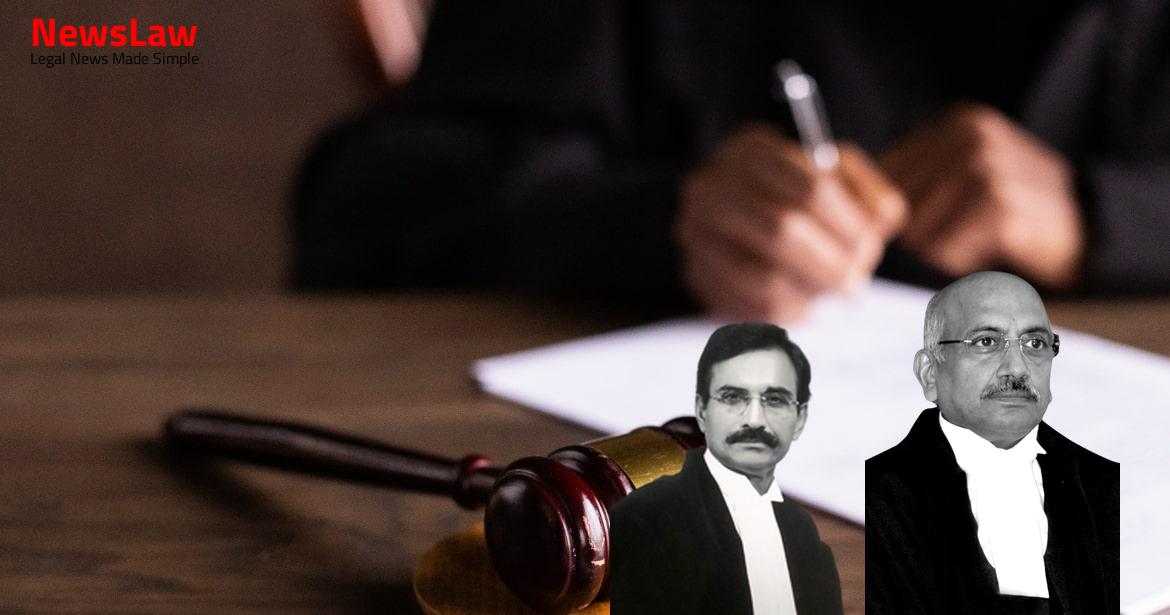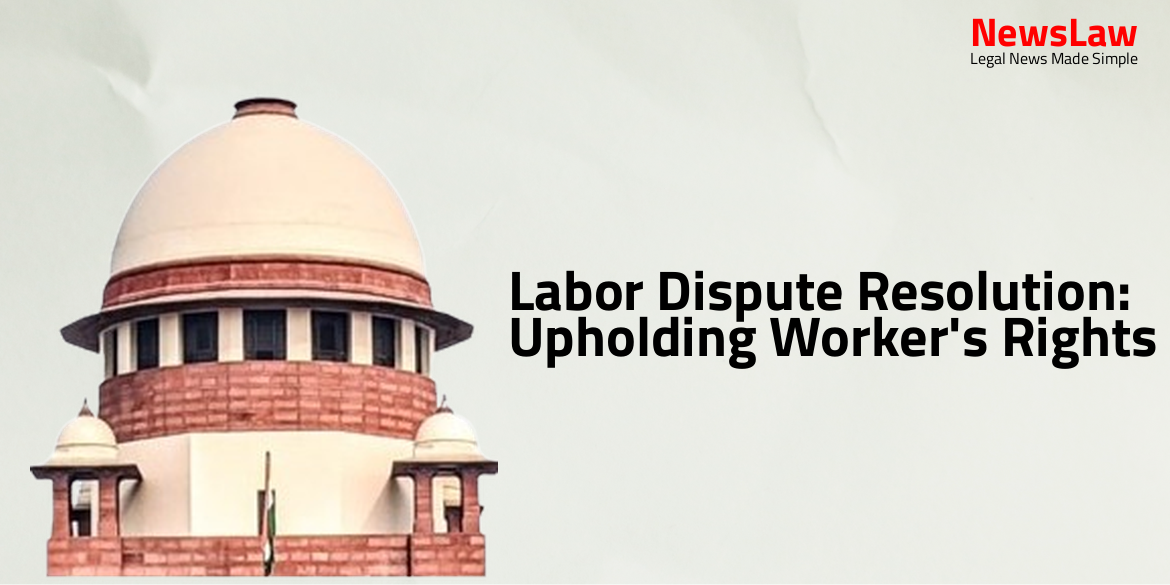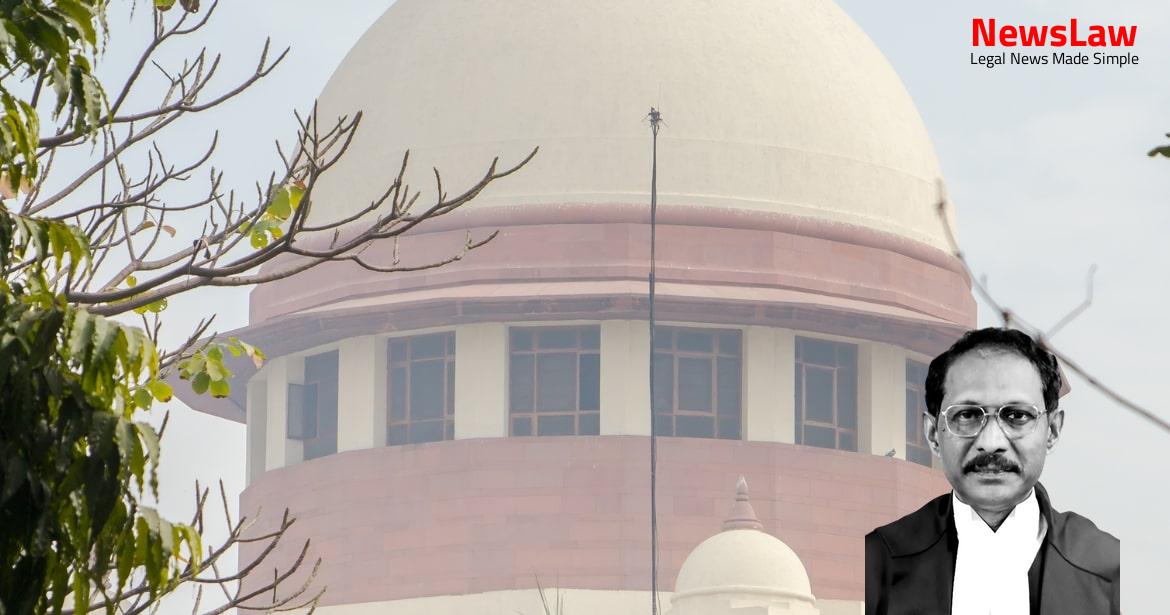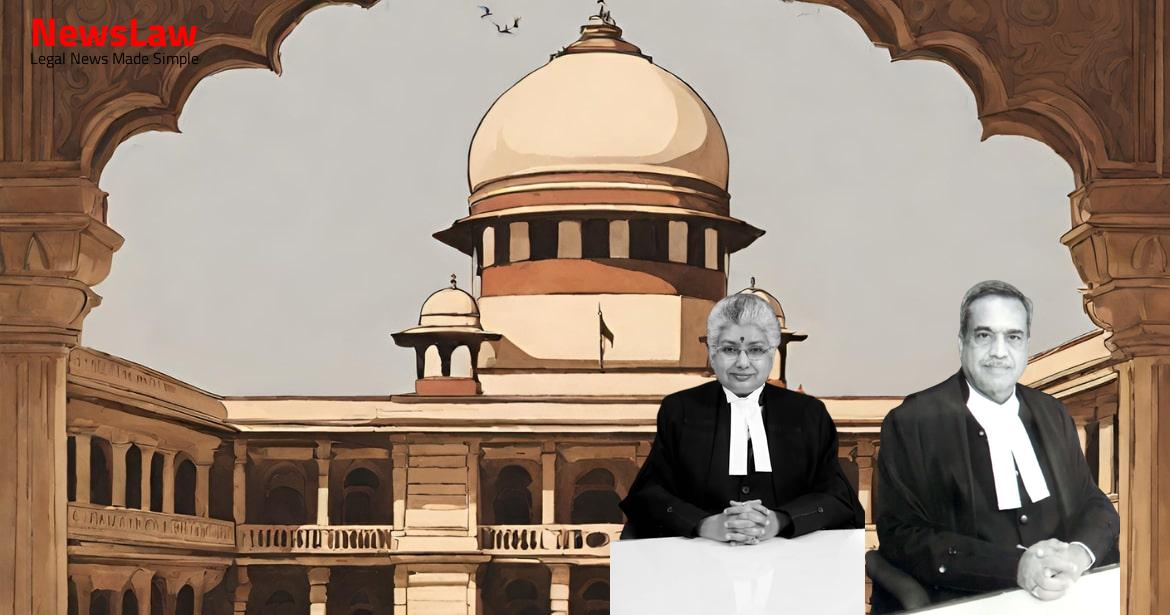The case of Asgar Ali & Ors. v. State of Jharkhand & Ors. involves a dispute regarding pension benefits for former employees appointed under a Central Government sponsored project. The High Court ruled against the appellants, denying back wages and pension based on past services under the project. The case highlights the complex legalities surrounding pension entitlements for government employees. Find out more in the detailed summary.
Facts
- The Court declined the claim of back wages for the appellants appointed under the specific scheme sponsored by the Central Government or foreign countries.
- The High Court held that services under the Adult Education and Non-Formal Education Project cannot be counted as government employment for pensionary benefits.
- Appellants appointed between 1978 to 1990 under the co-sponsored Project in Bihar claimed salary fixation and pension but were not considered part of the formal cadre of the State Government.
- Past service under such schemes cannot be counted for pensionary benefits or salary fixation once the employees are regularly absorbed into the government.
- The Government of Jharkhand’s notification stated that surplus personnel absorption will be treated as new appointments without seniority or pay protection based on past service.
- The Court upheld the decision that past service of employees appointed under the abolished Project would not be considered upon their discharge.
- Employees in Categories I and II claim pensionary benefits, while Category III claims seniority based on past services under the Project.
- Government of India closed the Project on 1 April, 2001.
- Government of Jharkhand absorbed surplus employees declared before May 16, 2001, through a notification on May 30, 2007.
- Several employees were absorbed in different departments and scales of pay, starting from July 24, 2007.
- Employees who had retired before being absorbed were directed to be paid salary until their retirement dates.
- Employees declared surplus before May 16, 2001, but absorbed later, were to be treated as new appointments with no consideration of past service for seniority or pay protection.
- High Court received 59 writ petitions for pensionary benefits and seniority, leading to the matter being presented before the Full Bench.
- The Full Bench categorized the writ petitions into three groups based on different circumstances of the employees.
- The appellants in the third group of petitions were working at the time of filing, after being absorbed by the Government of Jharkhand as per the notification.
- Some appellants were appointed as Adult Education Supervisors while others were in ministerial roles.
- Dhyan Singh’s case pertained to appointments under the Project in the State of Haryana.
- Government of Jharkhand declared employees surplus from May 16, 2001, post the bifurcation of Bihar.
Also Read: Interpretation of Mandatory Statutory Time Limits
Arguments
- The appellants argued that the Circular issued by the State Government under Rule 59 of Bihar Pension Rules, 1950, should be applicable in Jharkhand after its bifurcation.
- They referred to an order in the case of Asgar Ali & Ors. v. State of Jharkhand & Ors. where the direction of the High Court for payment of arrears was not interfered with.
- The appellants claimed entitlement to pension benefits based on the concluded issue of arrears of salary, as per the mentioned order.
- The respondents contended that the Circular was not applicable to employees engaged under a Central Government sponsored project, as per the argument of their counsel.
- The temporary or officiating service of a Government servant is considered pensionable under Rule 59, which does not apply to employees engaged under the Project.
- The Full Bench of the Jharkhand High Court’s view was argued to not warrant any interference in the present appeals.
- The statutory provisions of Jharkhand Pension Rules were referred to in the order, with the High Court emphasizing the conditions required for service to be treated as pensionable.
- The appellants claimed that past service should still count towards pensionary benefits, despite being denied seniority or pay protection by a policy decision of the State.
- State government has declared that services of temporary government servants under different schemes qualify for pension after 15 years of service.
- This declaration is in accordance with Rule 59 of the Rules.
- The services rendered by temporary government servants would be entitled to pension upon completion of 15 years of service as per the State Government’s decision.
Also Read: Challenging Legal Analysis in Acquittal Reversal
Analysis
- High Court relied upon judgment of this Court in Dhyan Singh & Ors. v. State of Haryana & Ors.
- Judgment in Baliram Singh has attained finality with the judgment of this Court reported as State of Bihar & Ors. v. Baliram Singh & Ors.
- Appellants have been paid salary for the period prior to their regular appointment, entitling them to pension as well.
- Single Bench of the Jharkhand High Court in Asgar Ali dealt with a prayer for absorption and payment of arrears of salary from 16 May, 2001 to January, 2008 in Writ Petition No.729 of 2004.
- Learned Single Bench directed the state for the payment of salary as the services of the employees were not retrenched, entitling them to their salary.
- High Court held that the judgment of Single Bench of Patna High Court in Baliram Singh & Ors. v. State of Bihar & Ors. is per incuriam.
- The Circular dated 12 August, 1969 is not applicable to employees appointed under the Project as their appointment was for a specific purpose, not unlimited.
- Reliance on an earlier order regarding Baliram Singh by the High Court is no longer valid.
- LPA No. 2307 of 2016 was dismissed on 15 January, 2018.
- Appellants’ appointment under the Project is not part of the State Government cadre.
- The Circular from 12 August, 1969 pertains to pensionary benefits for temporary government servants.
- The appellants’ appointment under the Project was not in a pay scale or sanctioned without a time limit.
- Rule 31 of the Rules defines a permanent post as one with a definite rate of pay and sanctioned without a time limit.
- The appellants satisfied only the condition of being paid by the Government.
- Appellants were engaged under a scheme, hence not eligible for benefits under the Circular.
- State’s LPA No. 533 of 2012 was dismissed on 1 October, 2013.
- Arguments for the appellants were found without merit by the court.
- The appointment letters had specific clauses pertaining to the Project.
- Appellants were never appointed by the Government on a temporary or permanent basis.
- Rule 59 empowers the State to declare specific service for pension if salary is paid from general revenue.
- Appellants’ service under the Project does not fulfill the conditions for eligibility for pension.
- Interruption in service on post abolition does not entail forfeiture according to Rule 103 of Bihar Pension Rules.
- Rule 58 outlines conditions required for services to be pensionable.
- Case based on Rule 59 and Circular dated 12 August, 1969.
- The Project was not a permanent establishment but for a specific purpose for a specified period.
- Policy decision dictates no benefit of seniority or pay protection for fresh appointments under the Project.
- The High Court order is upheld without finding any error.
- The present appeal is disposed of in the same terms as in Baliram Singh case.
- Appellants absorbed as fresh appointees without pay protection and seniority.
- Past service under the Project cannot be counted for pension purposes.
Also Read: Appellant v. High Court of Rajasthan: Clarification on Export Incentives Scheme
Decision
- Appeals dismissed
- No mention of specific names in the verdict
- Decision final and binding
Case Title: PARMESHWAR NANDA Vs. THE STATE OF JHARKHAND CHIEF SECRETARY (2020 INSC 149)
Case Number: C.A. No.-000505-000531 / 2020



